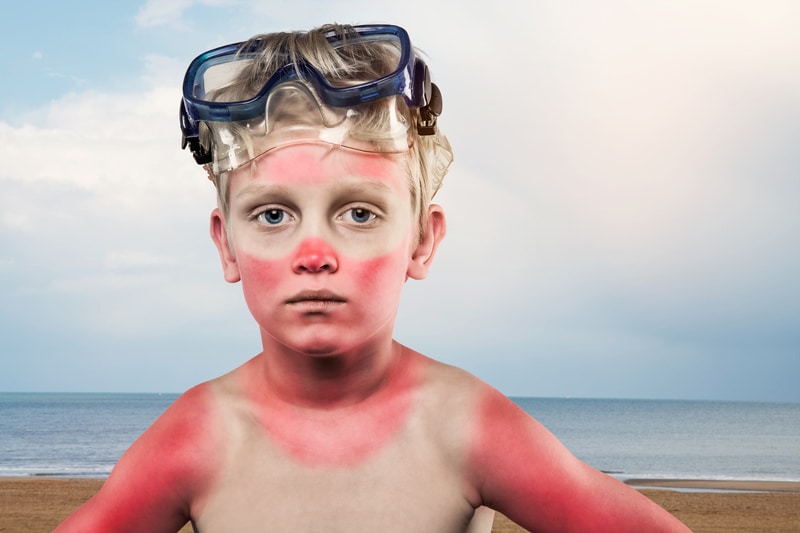Summer is nearly here, as spending time outdoors is a favorite activity for many people. Getting plenty of vitamin D offers a wide range of benefits, whether it’s boosting your mood, helping you fight diseases, or even strengthening your muscles. While sunshine provides numerous benefits, it can also lead to skin cancer if you receive too much.
Types of Skin Cancer
Skin cancer due to sun exposure is highly preventable if you take a few precautions. The three major skin cancer types include melanoma, squamous cell carcinoma, and basal cell carcinoma. Malignant melanoma is the most significant type of skin cancer, as it can easily spread to other areas of the body. However, the majority of skin cancer cases include either squamous cell carcinoma or basal cell carcinoma. Both of these skin cancers are unlikely to spread to other areas if treated early.
Here is an overview of each one of these types of skin cancer.
Basal Cell Skin Cancer
Basal cell carcinoma is diagnosed in over 80% of skin cancer cases each year. Basal cell cancer develops in the lowest portion of the epidermis. Typically, basal cell skin cancer occurs in areas that receive the most exposure from the sun, such as the head or neck. Basal cell skin cancer usually grows slowly, and it’s rare for it to spread to other places in the body. However, it can eventually spread if it’s left untreated, as early detection and treatment is essential with basal cell carcinoma.
Melanoma Skin Cancer
Melanoma is a dangerous skin cancer, as it develops in cells that create melanin, which is also the pigment that gives your skin color. The exact origin of melanoma cancer is unclear, but significant exposure to ultraviolet (UV) radiation from the sun and tanning beds can increase your risk of melanoma cancer. Limiting the amount of exposure to UV radiation is essential in reducing the risk of melanoma. Fortunately, melanoma can often be treated successfully if it’s detected early.
Squamous Cell Skin Cancer
Squamous cell carcinoma is the second most prevalent type of skin cancer, as it’s normally found on places of the skins that’s been exposed to the sun, whether it’s the face, neck, back, ears, or hands. However, squamous cell carcinoma can develop in other locations, as they often grow slowly, and it’s not common for it to spread to other areas.
Skin Cancer Risks
Spending time out in the sun is important in getting enough vitamin D. However, too much time outdoors can lead to sun poisoning, which causes redness, peeling, and scaly skin. It’s recommended that you apply sunscreen on your body if you plan on being outside for more than 20 minutes. Applying sunscreen on your body is especially important if you are sun tanning, as the rays of the sun are very strong between 10 a.m. to 4 p.m. However, sunscreen will eventually wear off, as you need to reapply it every couple of hours while you are outside.
How to Decrease Your Chance of Skin Cancer
The risk of skin cancer greatly increases if you spend a lot of time outdoors without any protection. Besides sunscreen, the type of clothing you wear can make a big impact on your risk of sun poisoning. One way you can keep your skin protected is to wear a long-sleeved shirt and pants. Wearing sunglasses and putting on a wide-brimmed hat is also beneficial in reducing your risk of skin cancer. Staying in the shade will also help you stay cool, but that’s not always possible. You also need to take additional precautions near sand or water, as they will reflect the sun rays and cause even more damage to your skin.
Signs of Skin Cancer
Knowing the signs of skin cancer is essential in staying safe. Regularly checking your body is a great way to stay proactive against skin cancer. You may notice a mole that looks different from the rest or a scaly patch of skin. Other signs of skin cancer include redness or dome-shaped growth. Immediately contacting a dermatologist to further investigate these signs is critical in getting the help you need before it potentially gets worse.
Closing Thoughts
Sun tanning is a favorite pastime for many people during the summer, but it also carries an increased risk for skin cancer. Always using plenty of sunscreen, frequently changing positions, and eating lycopene-rich foods can all play a key role in helping you stay safe while enjoying your time in the sun for summer 2021!

